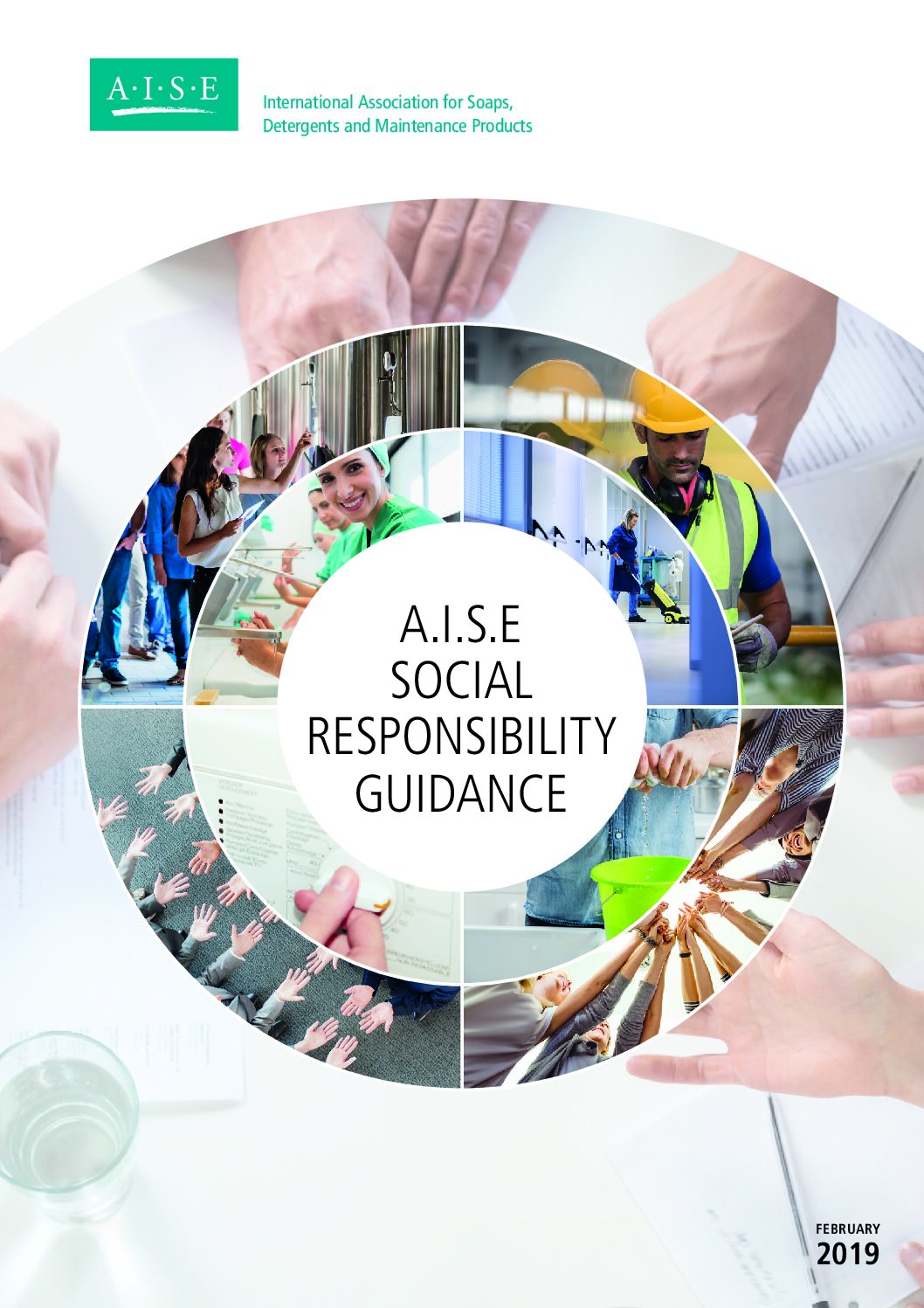Throughout the last 20 years, A.I.S.E. has shown dedication to sustainable governance, through its role model A.I.S.E. Charter for Sustainable Cleaning, adopted by nearly 90% of the industry production. With its guidance on social responsibility, A.I.S.E. goes one step further in supporting its members by strengthening the social aspect of sustainability in their business model.
Socially responsible guidance
In the global perspective, our industry sector positively contributes to the United Nations Sustainable Development Goals (SDGs), which provide inter alia a conceptional framework on Social Responsibility, e.g. via Goals 8 ‘Decent work and economic growth’ and 12 ‘Responsible consumption and production’. In addition, A.I.S.E. supports the EU strategy on CSR, encouraging enterprises to adhere to international guidelines and principles.
Sustainable development is one of A.I.S.E.’s strategic priorities enshrined in the industry vision ‘A prospering cleaning and hygiene industry which is a role model for serving society in an innovative and sustainable way’. The UN SDGs provide a global framework inspiring A.I.S.E.’s strategy, with specific focus on the following goals:

It is in this spirit, that A.I.S.E. developed its Corporate Social Responsibility guidance with the purpose to address the specific social responsibility areas, which are relevant to the cleaning and maintenance products industry in Europe.
With subject matter expertise from CSR Europe, A.I.S.E.’s guidance supports all companies in the industry sector, especially SMEs, to find all information they need, in order to implement the requested SR areas within their management system. The guidance first presents key implementation factors of sustainable company management. The four areas of sustainability’s social dimension are mapped out according to the key implementation factors, in order to make it easier for companies to identify what to prioritise and how to assign internal resources.
- Human rights
- Labor practices
- Fair operating practices
- Community involement and development
The expectations formulated in the four areas are based on EU legislation, international standards and guidelines. A self-evaluation tool for companies is available as part of this guidance, helping companies to assess their risks related to social sustainability areas.
Environmental areas are not covered per se via this guidance, since those are extensively addressed via the A.I.S.E. Charter for Sustainable Cleaning, This is a lifecycle analysis (LCA) based framework, promoting and facilitating a common industry approach to sustainability practice and reporting; a wide variety of activities and initiatives are covered, ranging from the human and environmental safety of chemicals and products, to eco-efficiency, occupational health and safety, resource use and consumer information.

